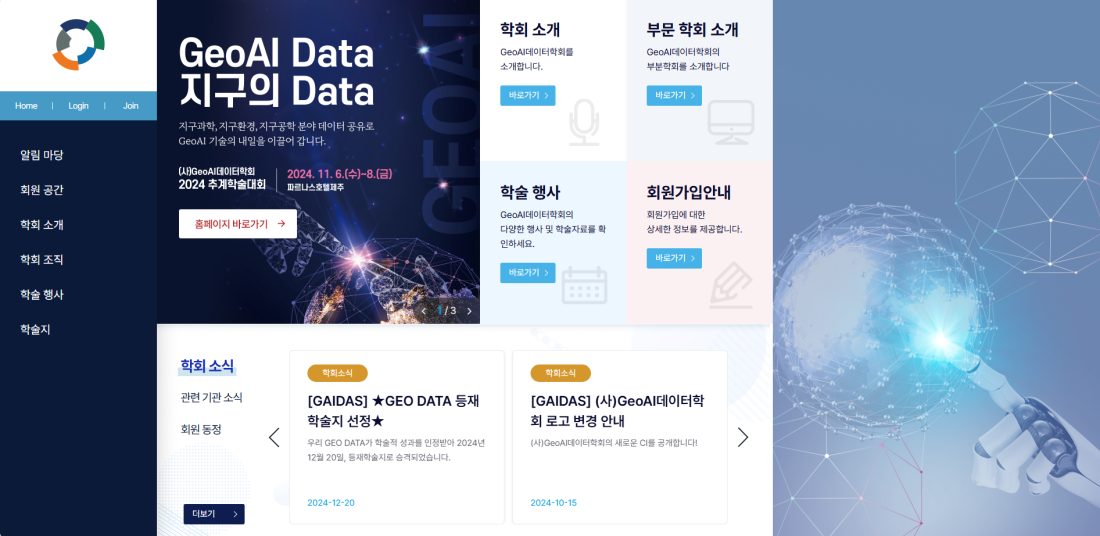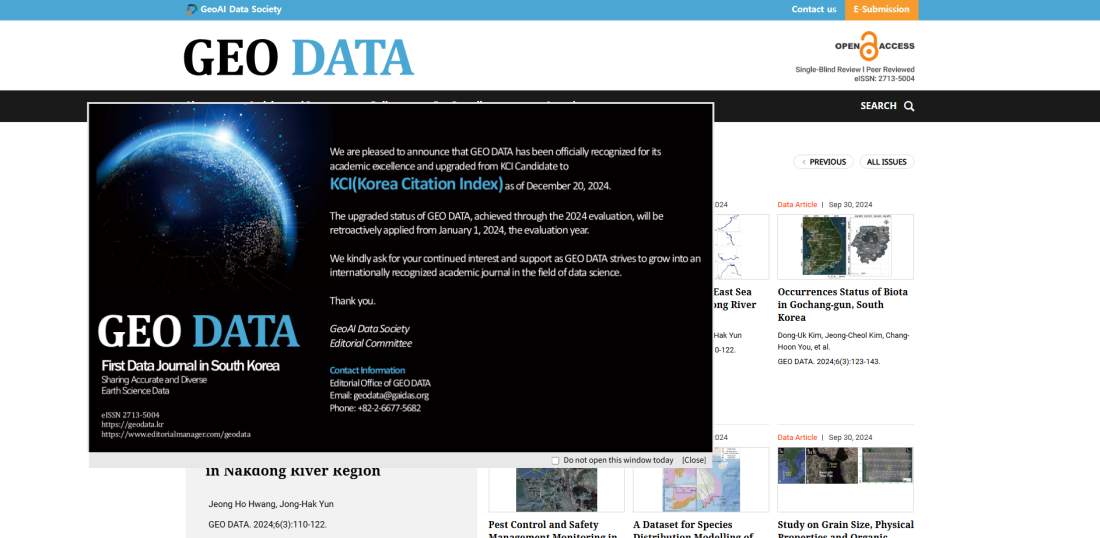About Society
GeoAI Data Society
Artificial intelligence (AI) and big data have become widespread topics of discussion globally due to their transformative potential in advancing science and engineering, enhancing corporate competitiveness, improving quality of life, and delivering effective public services.
As AI technology continues to evolve, its applications in geoscience, the global environment, and geoengineering are increasingly recognized as essential for scientific and technological progress. However, the development of AI technology relies heavily on the availability of extensive datasets. The difficulty in collecting the necessary data has posed significant challenges for researchers engaged in pioneering international studies.
To address these challenges, the GeoAI Data Society was established to foster a culture of active AI data sharing and to contribute meaningfully to the advancement of science and technology. Since 2019, the Society has published the journal GEO DATA to facilitate the sharing of AI data by discussing its creation process, region of origin, methods of creation, and related discourse. Through the active engagement of its members, the Society aspires to transform GEO DATA into a leading international journal.
In this era of the accelerating Fourth Industrial Revolution, the GeoAI Data Society is committed to maximizing the use of AI data in geoscience, the global environment, and geoengineering through academic collaboration, successful conferences, and the sustainable development of its journal.
Establishment
The GeoAI Data Society was founded on July 7, 2021, with the mission of "contributing to the advancement of the Fourth Industrial Revolution and academia by sharing and utilizing GeoAI data." It was formed by individuals concerned about the scarcity of AI data for research at a time when technologies in geoscience, the global environment, and geoengineering are increasingly adopting AI methodologies.
Purpose
The Society aims to contribute to the advancement of the Fourth Industrial Revolution and academic progress by promoting the sharing and utilization of AI data in the fields of earth science, the global environment, and geoengineering.
Business Activities
1. Publication and dissemination of journals and academic works
2. Organization of research presentations, lectures, and academic meetings
3. Provision of consultation, academic services, and evaluative analyses for government bodies, public organizations, and other entities
4. Undertaking other activities necessary to achieve the Society's objectives

